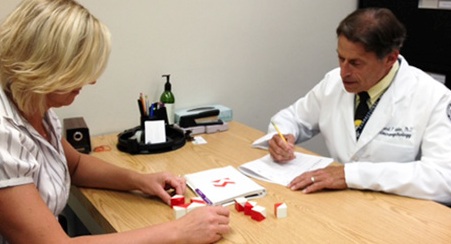Questions About Testing in Clinical and Medical Settings
How do tests help mental health professionals and their patients?Psychological tests enable mental health professionals to make diagnoses more reliably, validly, and quickly than they can from personal observation alone. Tests can uncover problems that a mental health professional may not detect until much later. This allows the clinician to focus on the appropriate treatment more quickly, thereby saving time and money for the patient or client. Once a course of treatment has begun, tests can help the clinician monitor the effectiveness of the treatment as it proceeds. Can psychological tests attach labels to people?Tests are not designed to label people. In fact, responsible test manuals discourage any such linkage between results and labels. These manuals help users interpret the test results in a way that respects each individuals uniqueness. They also recommend that the test user base diagnoses or clinical decisions on several sources of information rather than on just a single test result. However, some public groups such as insurance companies, legislatures, school boards, and human service agencies do attach labels to people. This happens when programs and treatments are standardized by categories. Thus, an individual seeking treatment or a child with learning problems often has to be diagnosed and labeled to fit into one of the categories in order to receive funding for the special help they need. Do clinical psychologists use different tests from those used in businesses or in schools?Sometimes. But most psychological tests, especially those measuring motor skills and mental aptitudes, can be useful in more than one field. A test for cognitive ability, for example, may be used in a school or at an employment office as well as by a mental health clinician. Also, some tests require high levels of training and expertise of test users for proper administration and interpretation. Can a test prove that somebody is mentally disturbed?Tests alone cannot diagnose a person. They are tools used only by qualified and competent professionals, just as a physician may combine information from X-rays, blood tests, and personal examination of the patient in reaching a physical diagnosis. What good are tests when somebody has already been diagnosed with a psychiatric disorder?Psychological tests are often used to monitor a persons response to medications, which are used increasingly in treating a number of disorders, including depression, schizophrenia, and attention deficit disorder in children. The tests can help to track progress during a course of treatment to determine if a person is receiving the correct dosage, or is responding correctly to the medication. In a similar manner, tests can help monitor a persons response to other therapeutic treatments such as psychotherapy. Tests can also serve to confirm or reject potential diagnoses. Since we now have modern medical procedures, such as magnetic resonance imaging (MRI), why do we need neuropsychological tests?It's true that medical imaging techniques are now widely used to help physicians diagnose neurological illnesses. However, neuropsychological tests are useful for screening patients for signs of neurological disorder. They are also helpful, and far less expensive than computerized tomography (CT) scans and MRIs, for monitoring patients over long periods of recovery or rehabilitation. Through neuropsychological testing, a physician can measure the progress of stroke victims, for example, and determine whether a particular treatment is working properly.
|

